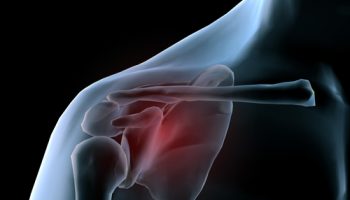 A pinched nerve in a shoulder blade is a common, but temporary condition that can be very painful and cause a lot of discomfort. A pinched nerve happens when too much pressure is applied to the tissue surrounding the nerve. In the shoulder blade, the pressure may result from a compressed or trapped nerve and impedes the transmission of signals from the brain to the nerve.
A pinched nerve in a shoulder blade is a common, but temporary condition that can be very painful and cause a lot of discomfort. A pinched nerve happens when too much pressure is applied to the tissue surrounding the nerve. In the shoulder blade, the pressure may result from a compressed or trapped nerve and impedes the transmission of signals from the brain to the nerve.
Symptoms Pinched Nerve Shoulder Blade
When you have a pinched nerve, there is a very big chance that when you do feel pain, you will feel a lot of pain. Sometimes, this symptom may be temporary while at times, it can last long and it will only go away when you do something about it. Here are some of the signs and symptoms that you have to watch out for:
- Pain. It has already been mentioned earlier that you will tend to feel pain on your shoulder blades. The type of pain that you might feel will vary. There may be times when the pain seems to be shooting throughout other parts of your body but there may also be times when the pain is just constant in one area.
- Numbness. If you start to feel that you cannot feel your arm and your shoulder that much anymore, this is may be a sure sign of having a pinched nerve. The type of weakness that you might feel may only be felt through your arm but at times, it may travel up to your arms. This might make it harder for you to go about with your usual tasks.
- Weakness. You might start to feel that you cannot move around your shoulder and your arm that much anymore. Lifting things may be very hard for you to do and even trying to lift your arm to the same level as your shoulder can be challenging.
Do remember that these are just some of the signs that you may experience and the type of symptoms that you might experience will also vary on how severe the nerve has been pinched. Do remember that at times, having a pinched nerve will only be temporary.
Causes Pinched Nerve Shoulder Blade
There are some factors that make you at risk of developing a pinched nerve in the shoulder blade, which include:
- Large breasts. Women with large breasts are likely to develop a pinched nerve because of the poor posture associated with carrying large breasts.
- A repeated movement of the shoulder can lead to a compressed nerve, which will eventually develop into a pinched nerve.
- Overexertion of the arms also compresses nerves and causes a radicular pain that spreads to the shoulder blade.
- Individuals suffering from obesity are prone to a pinched nerve in the shoulder blade. This is because the excess weight puts additional pressure on the nerves and muscles.
- Pregnancy may cause a pinched nerve because of the pressure that the growing fetus exerts on muscles and nerves.
- Medical conditions such as rheumatoid arthritis and carpal tunnel syndrome can put pressure on nerves because of the injury or damage associated with them.
Treatment Pinched Nerve Shoulder Blade
Once you have gotten confirmation from a medical professional that you have a pinched nerve in the shoulder blade, the next step is finding a way to treat it. This usually calls for treating the underlying cause, if any, but there are also steps that can be taken to mitigate the symptoms:
- Get enough rest. At the most basic level, resting is a direct means of easing the pain caused by a pinched shoulder nerve. Generally speaking, you will want to avoid moving the affected arm or your neck when possible. Modifying your sleeping posture may also be advised, but it will depend on the exact nerve in question.
- Use a traction collar. Depending on the nerve, you may end up wearing a traction collar to help keep your neck immobile. The physician who makes the diagnoses will be able to provide more tailored advice.
- Hot and cold therapy. Compresses can also be used to soothe swelling and inflammation. Apply a hot compress on the site for around fifteen minutes and then swap to a cold compress for another fifteen minutes. Repeat as needed until the area feels better.
- Over-the-counter painkillers. As with many medical problems, drugs can help as well. Specifically non-steroidal anti-inflammatories (NSAIDS) or painkillers in either over-the-counter or prescription form.
- Honey and cinnamon paste. If you want to try a natural remedy, you can also make a paste of honey and cinnamon to apply to the shoulder area. Let it sit for around ten minutes before washing it off.







